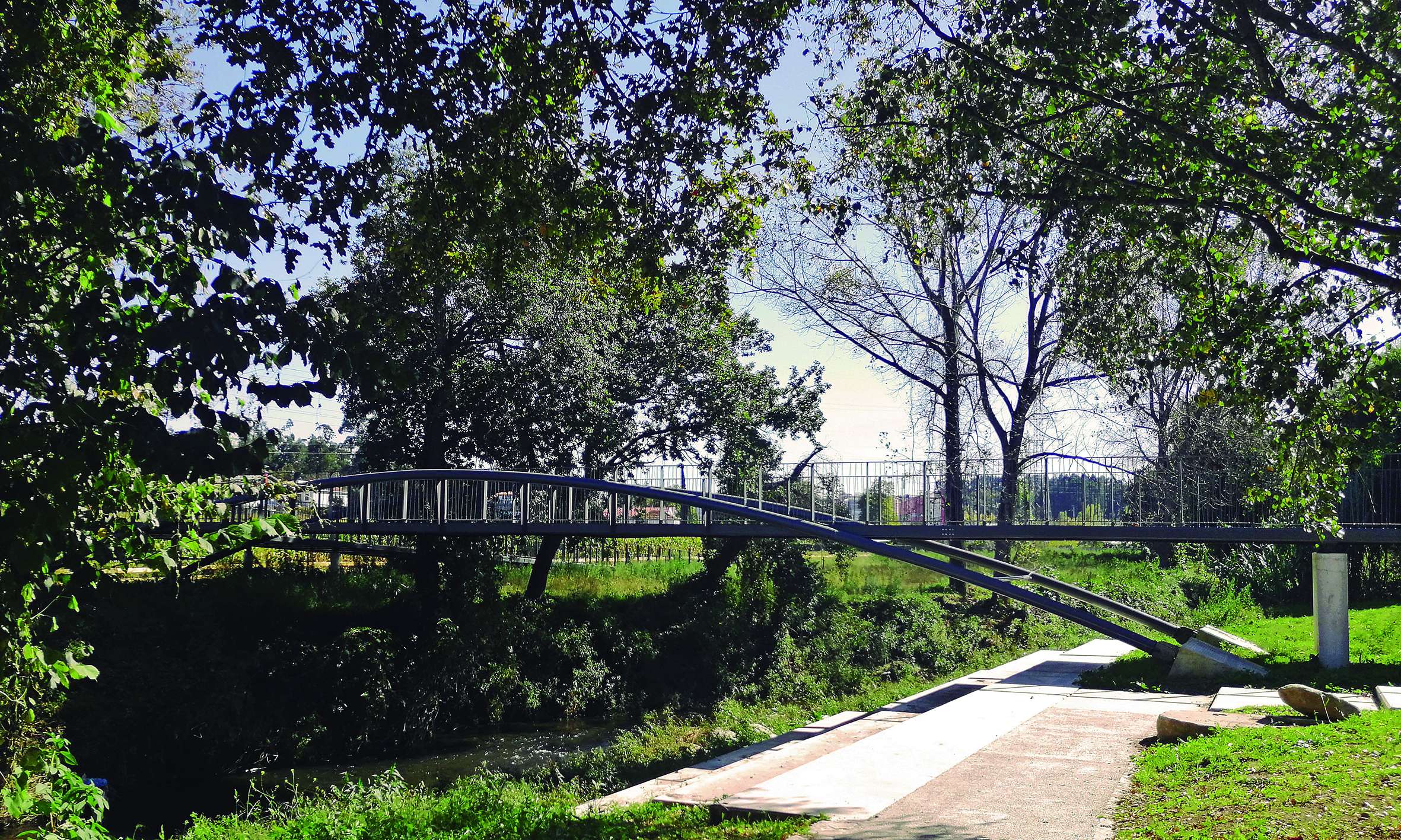
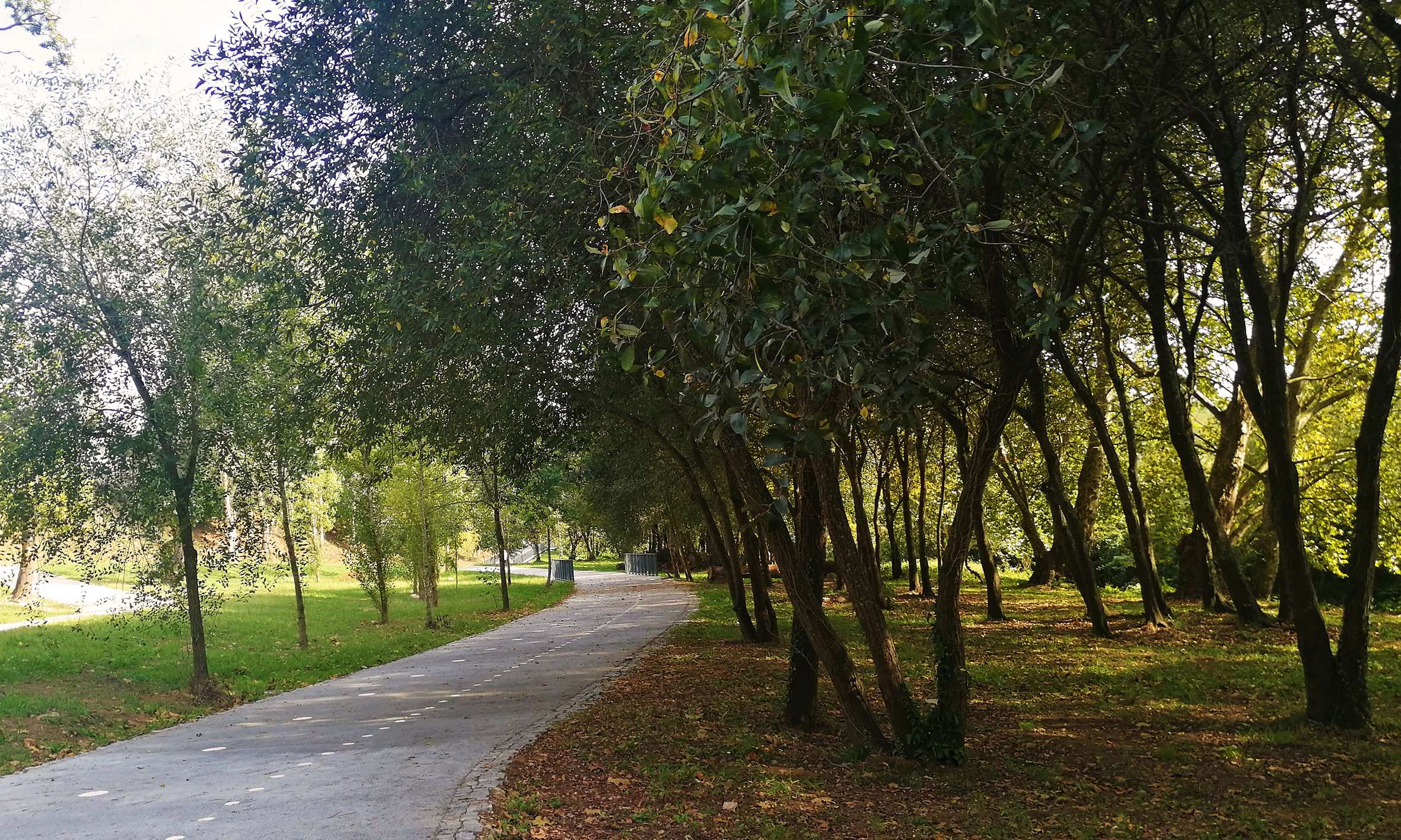
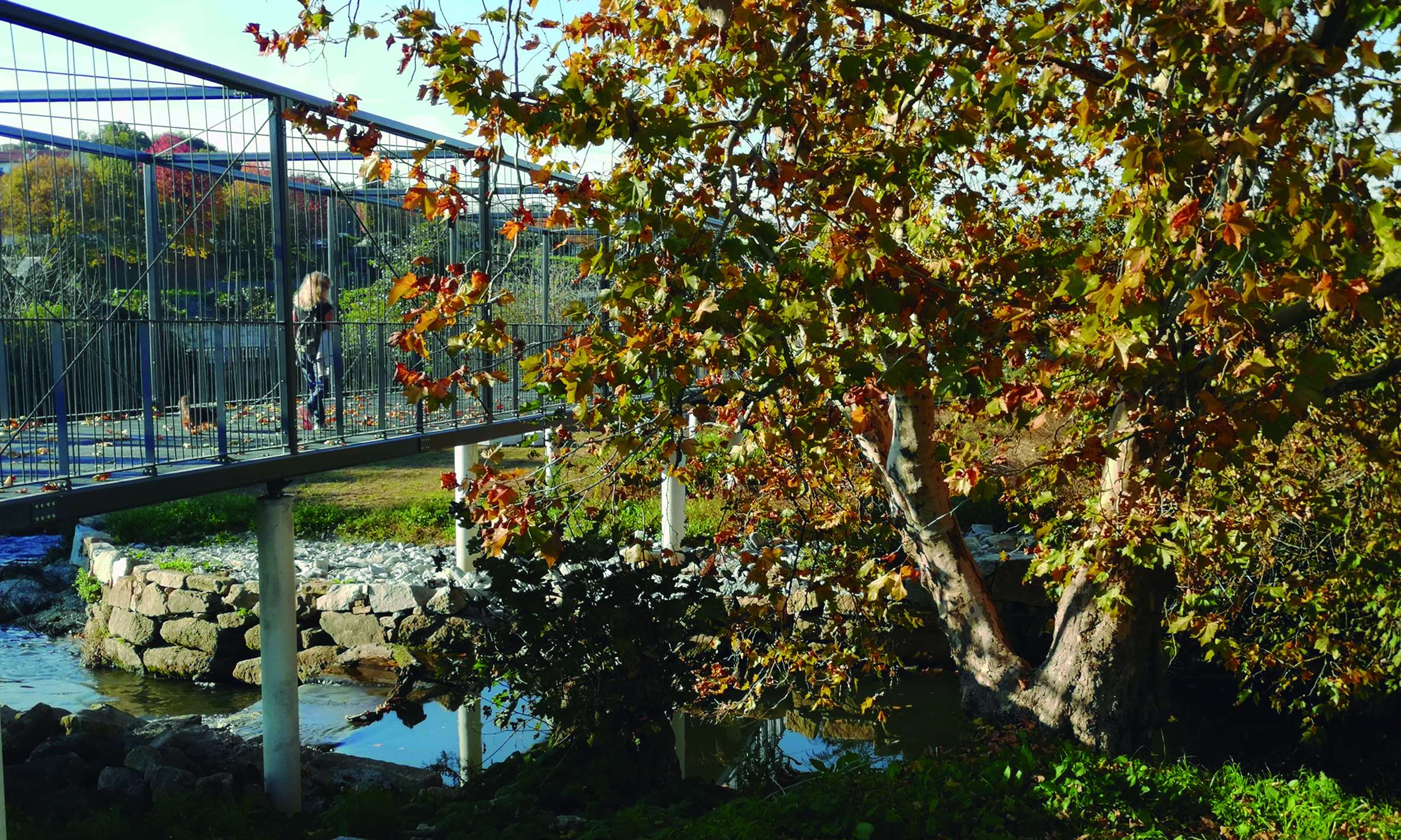
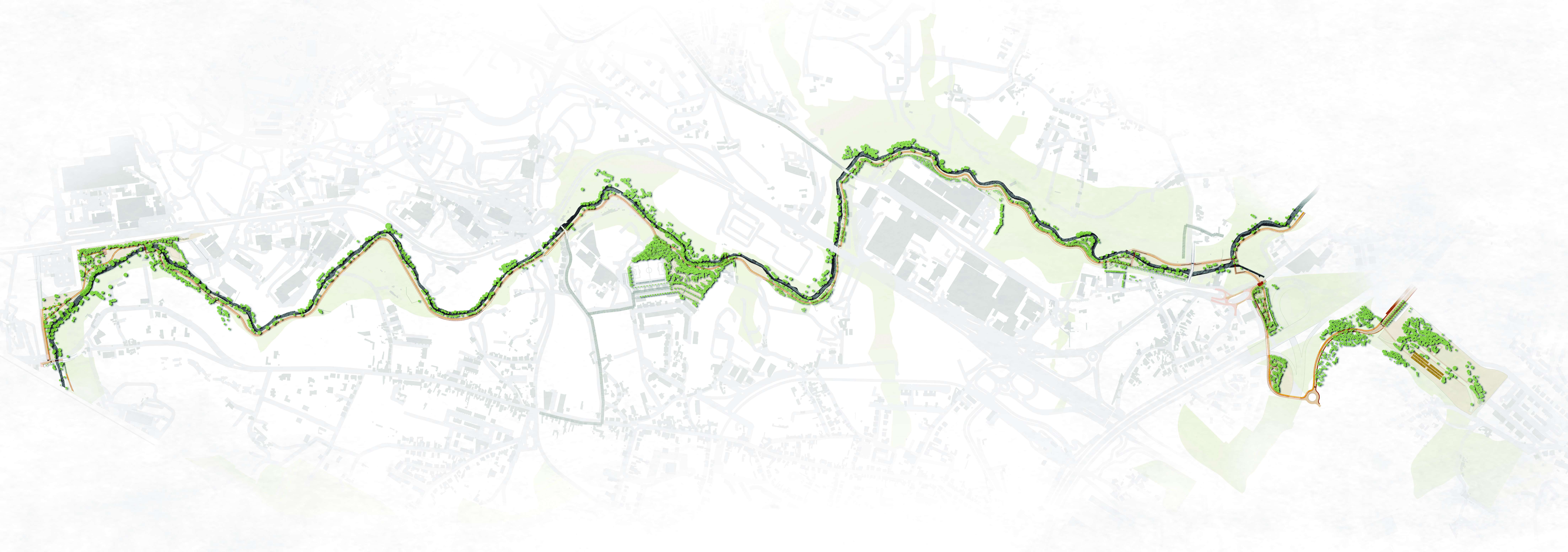
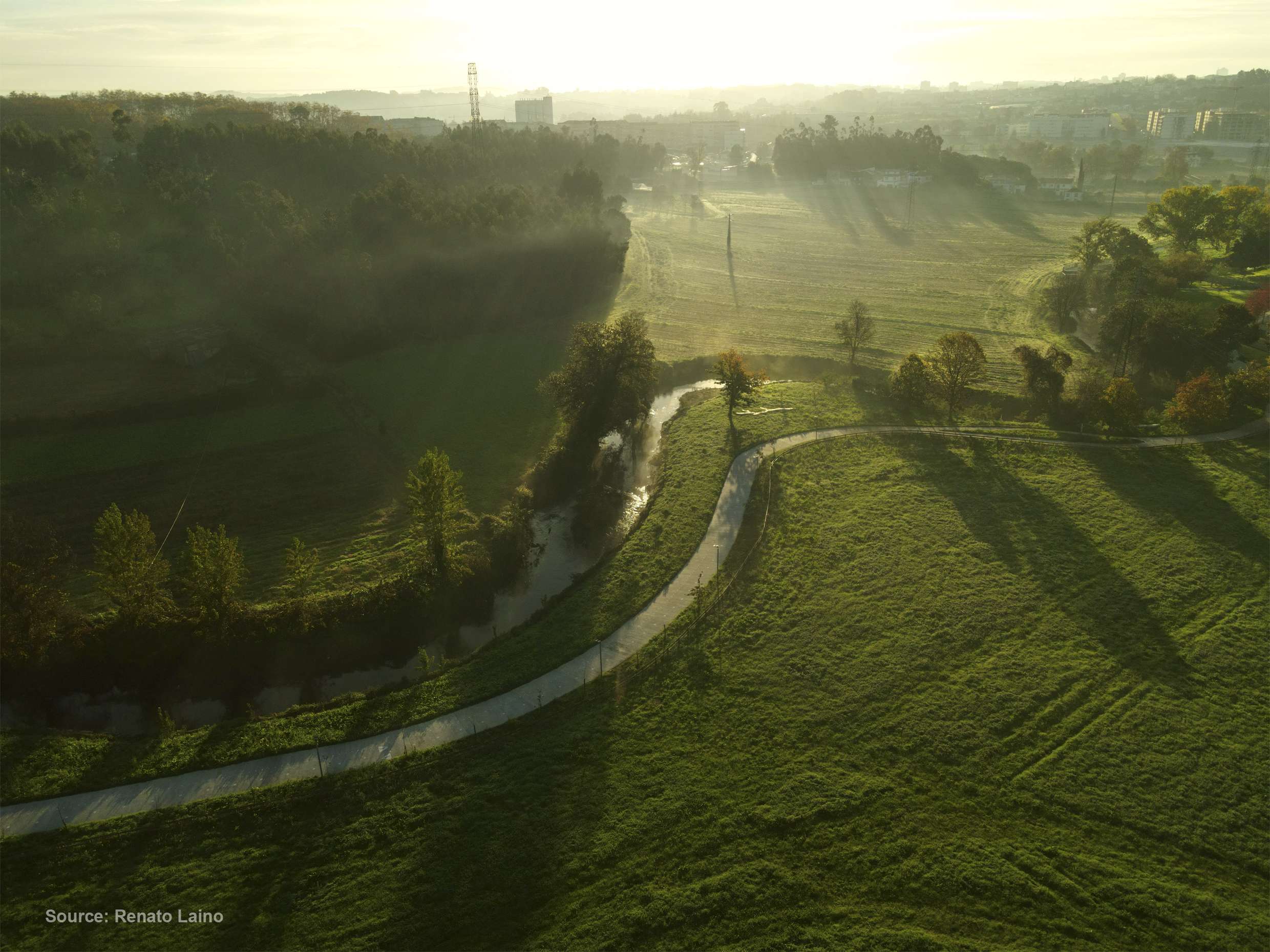
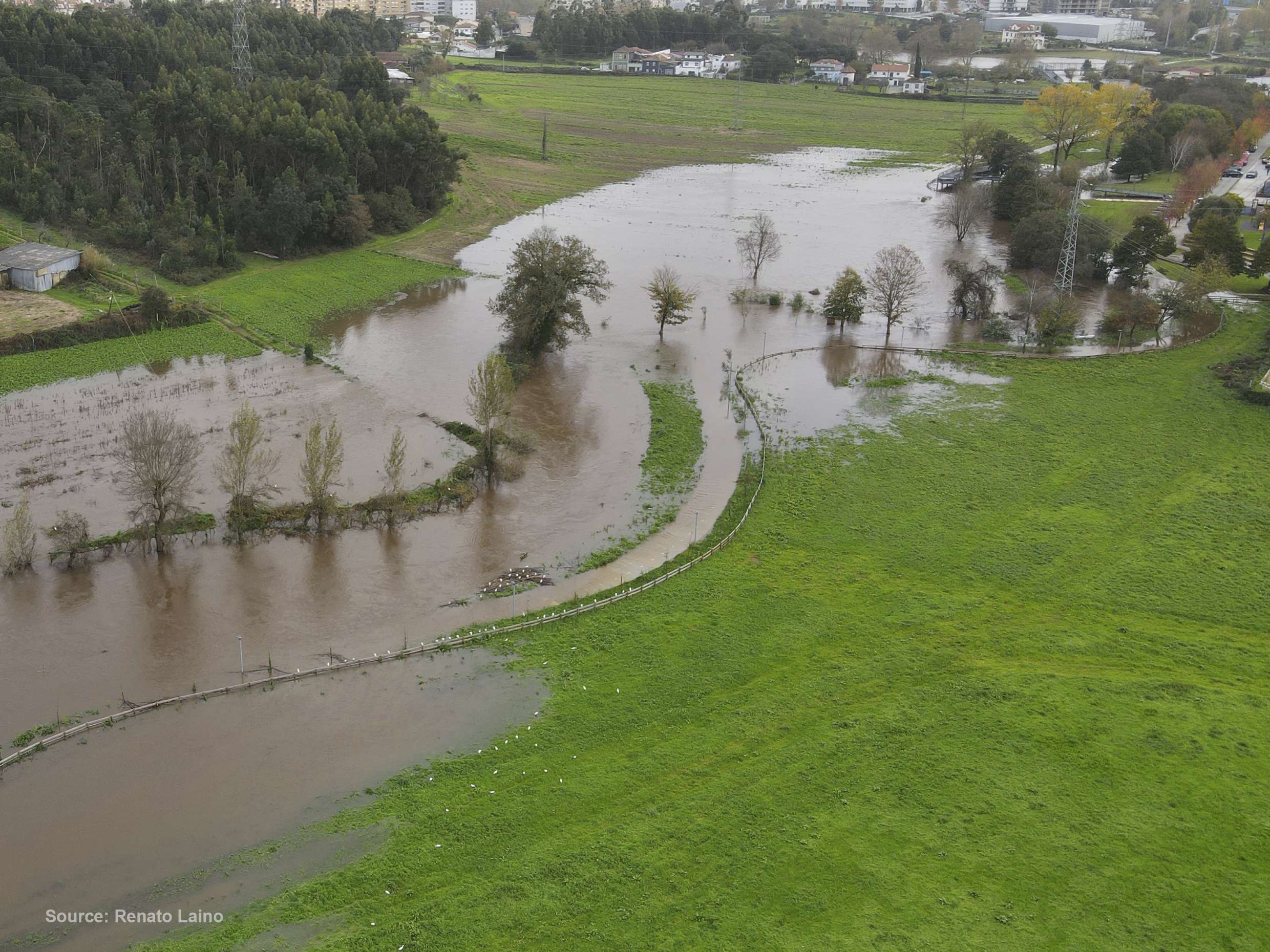

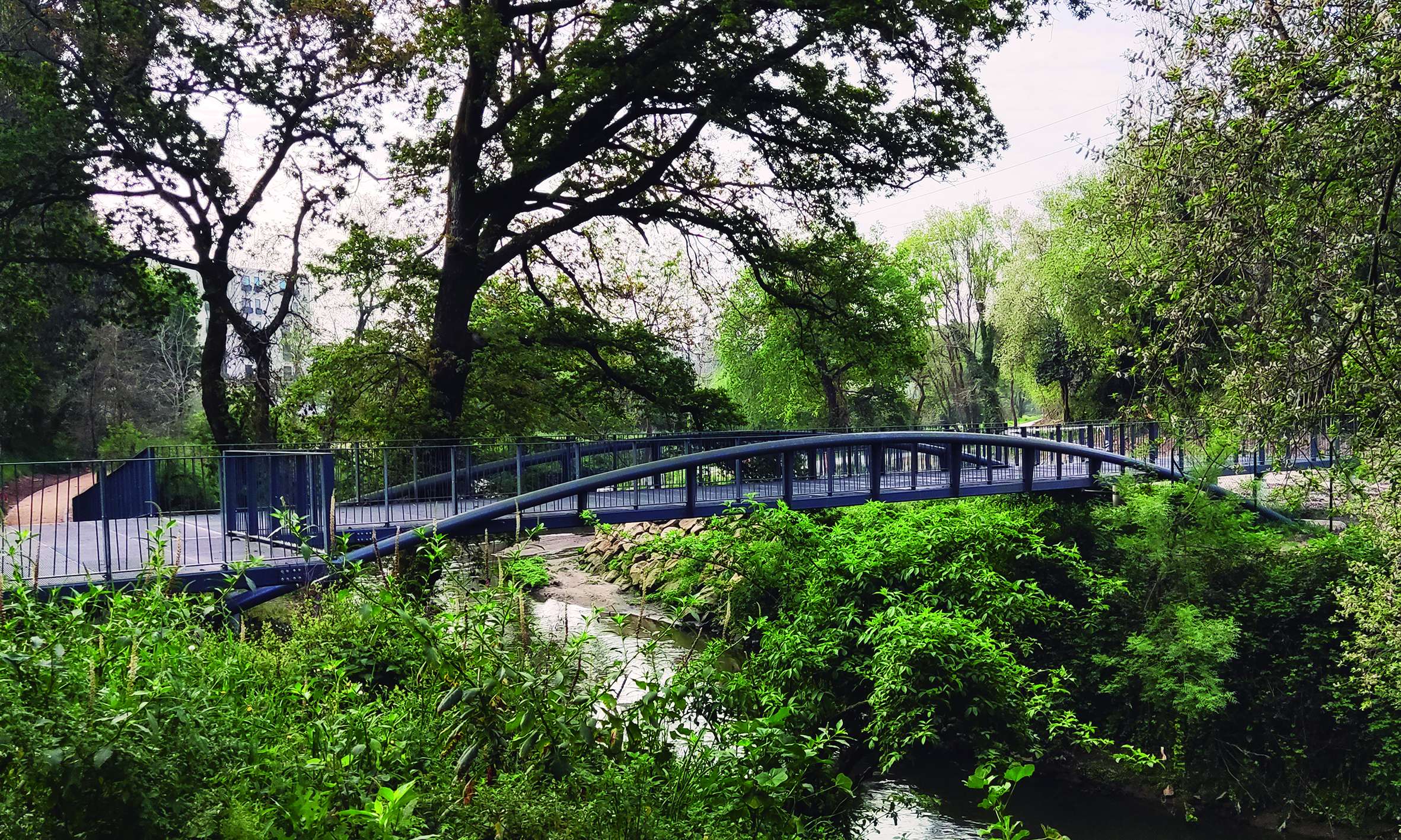
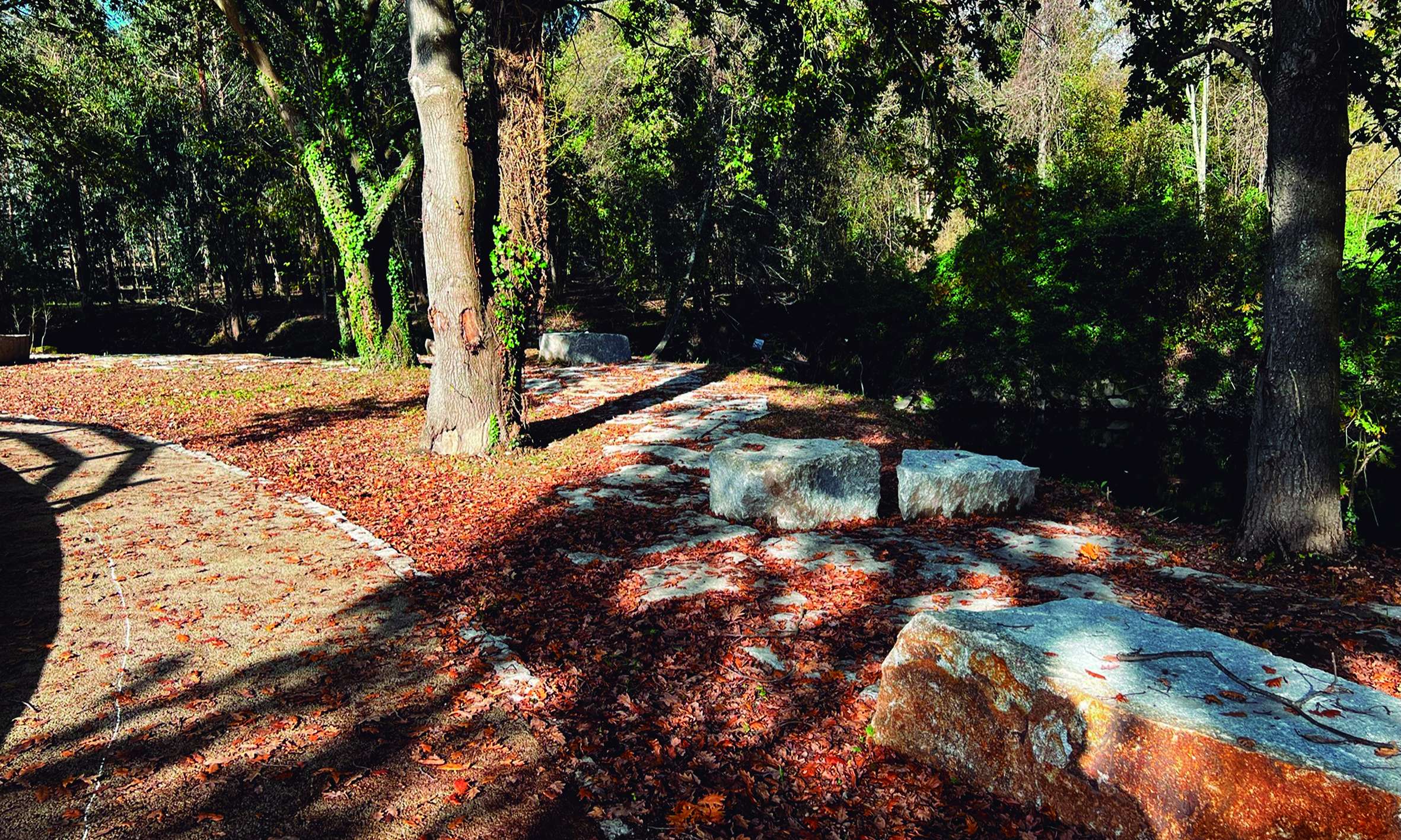
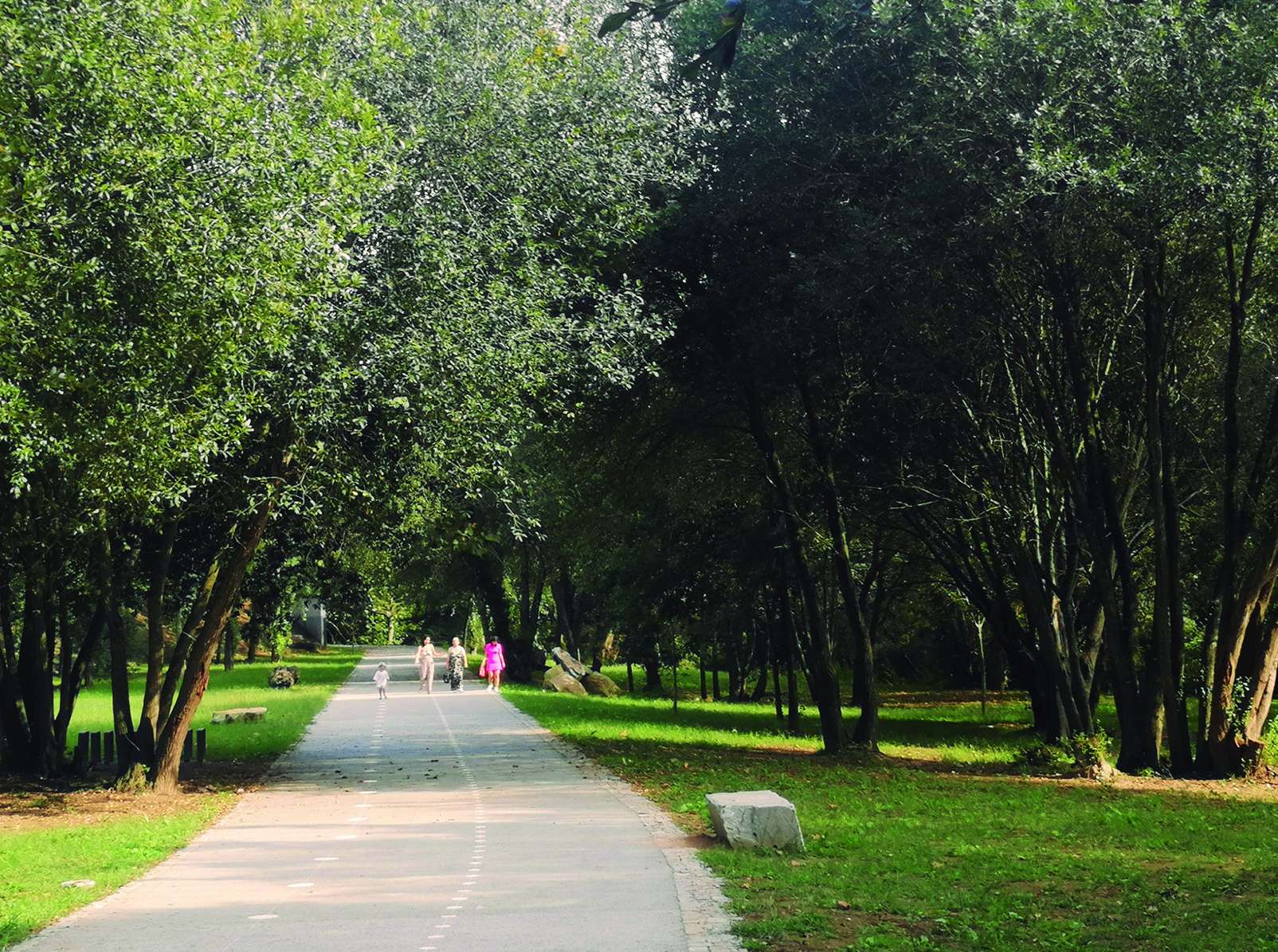
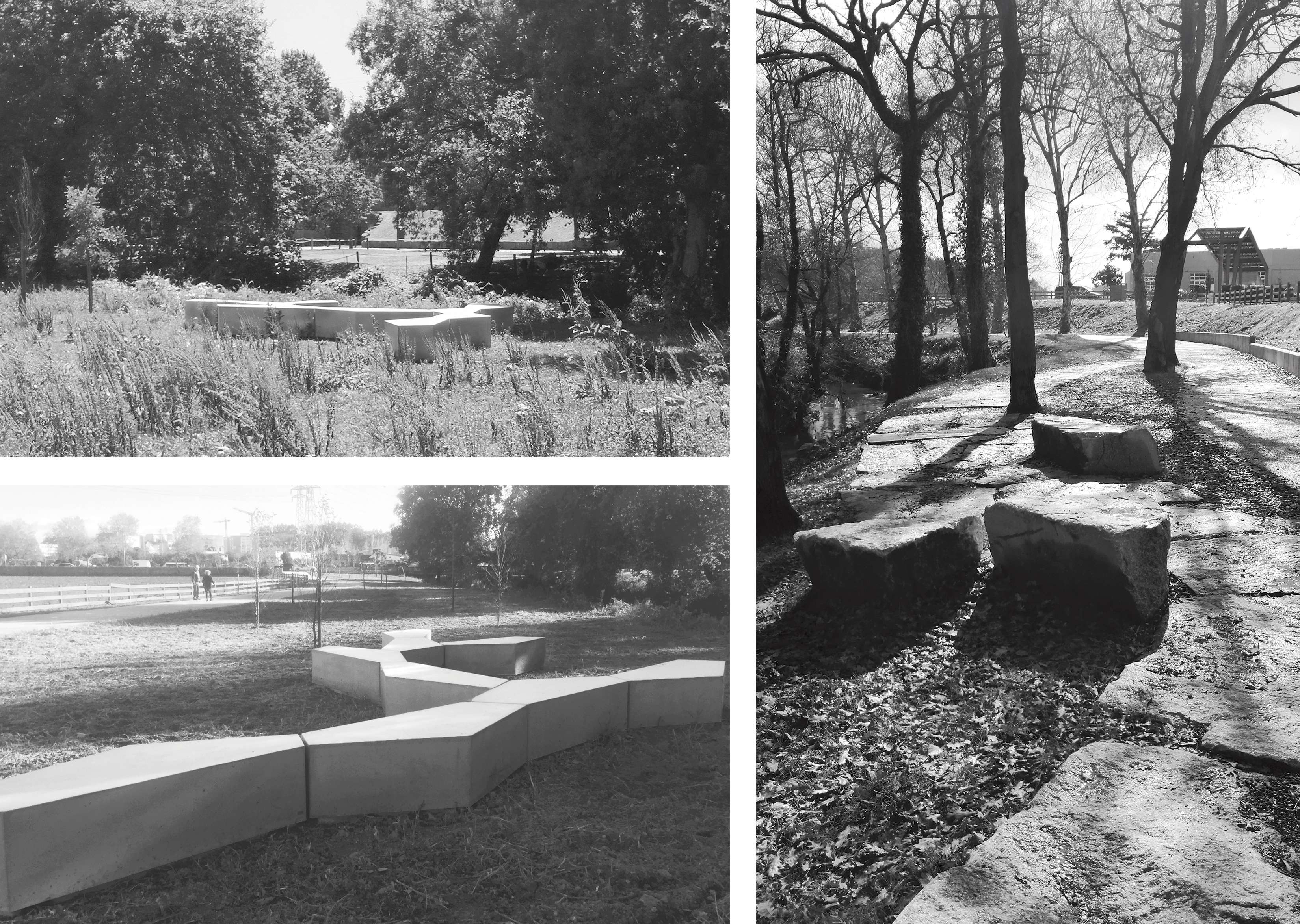
Corredor Verde do Rio Leça
Leça River Green Corridor
The Leça River Green Corridor spans 42 km in the Porto Metropolitan Area, Portugal. Currently, the river and its banks suffer from environmental degradation. The project's first phase covers 18 km, with 6 km already built and open to the public.
The main goals of the project are: creating public spaces along the riverbank, restoring the river's environment, improving the landscape quality and resilience, promoting biodiversity and ensuring smooth mobility and connections with urban centers.
Measures implemented include acquiring private land, cleaning water and soil, consolidating riverbanks, adapting overfloods, reforesting, reducing pollution, and connecting the pathway to public transportation. These initiatives preserve and revitalize the ecosystem, ensuring long-term sustainability.
Improving mobility and accessibility is the main focus, with pedestrian and cycling pathways connecting urban centers, schools, industries and service areas. Design guidelines include a 4m wide mobility lane, new pedestrian bridges, and integrating existing bridges to enhance connectivity.
Renaturalization of riverbanks incorporates: a) riparian forests; b) native species planting and hydroseeding to prevent soil erosion and promote biodiversity.
Connections with urban parks, agriculture, and forests are established, aiding biodiversity and water quality improvement through phytoremediation.
The project takes a holistic and sustainable approach, considering urban sprawl, agricultural and forestry cycles, connecting naturalized spaces with heritage elements. It offers opportunities for recreation, environmental education, and observing nature.
The project provides a cohesive and enriching experience. It establishes a significant park-like space, offering recreation and fostering a bond between nature and communities. Currently it is widely used for daily commutes, workplace walks, and weekend activities like sports, walks, and picnics. Volunteer actions focus on cleaning, tree planting, and bird identification. Schools, universities, and thematic tours are also regular activities.
